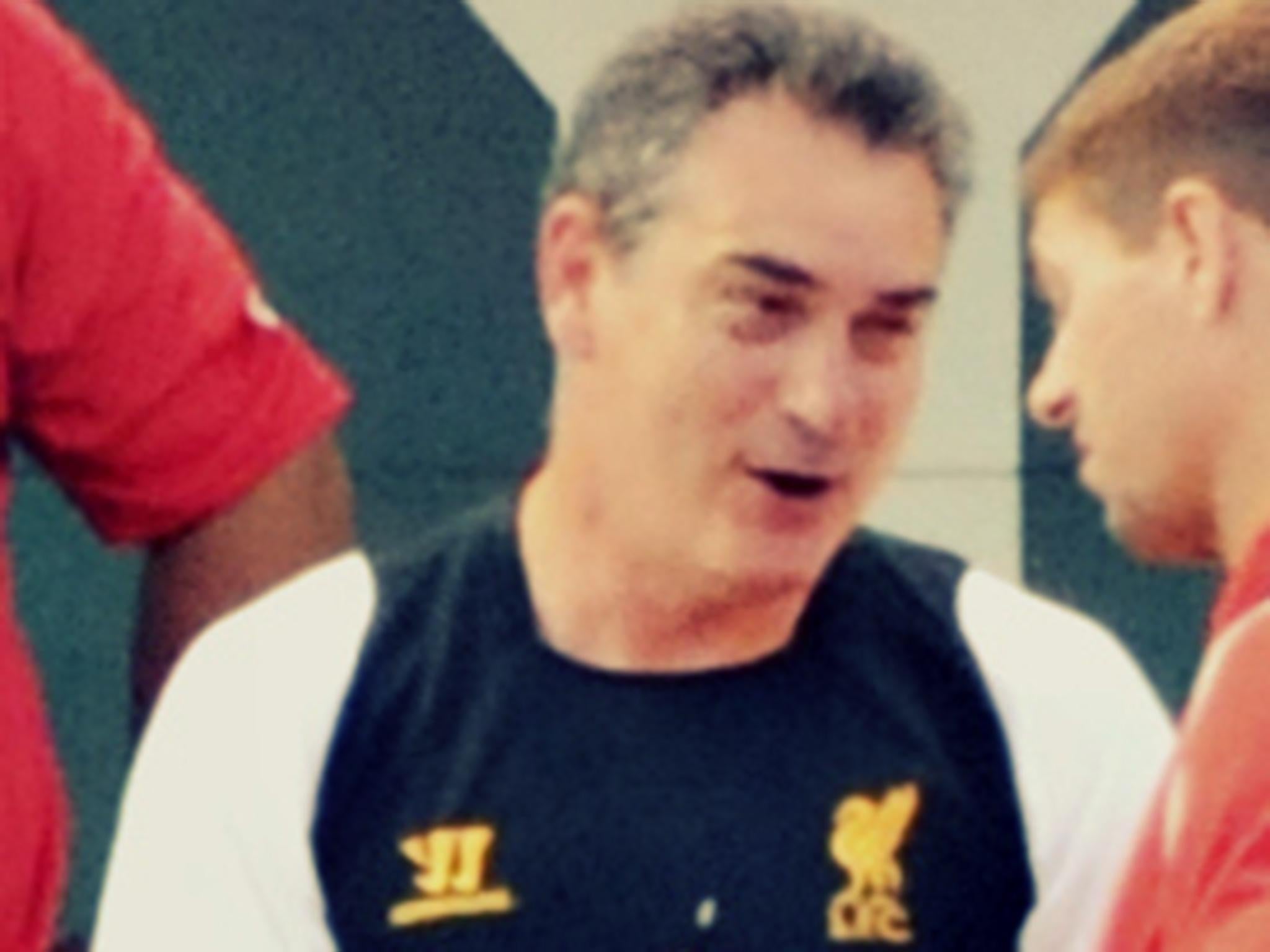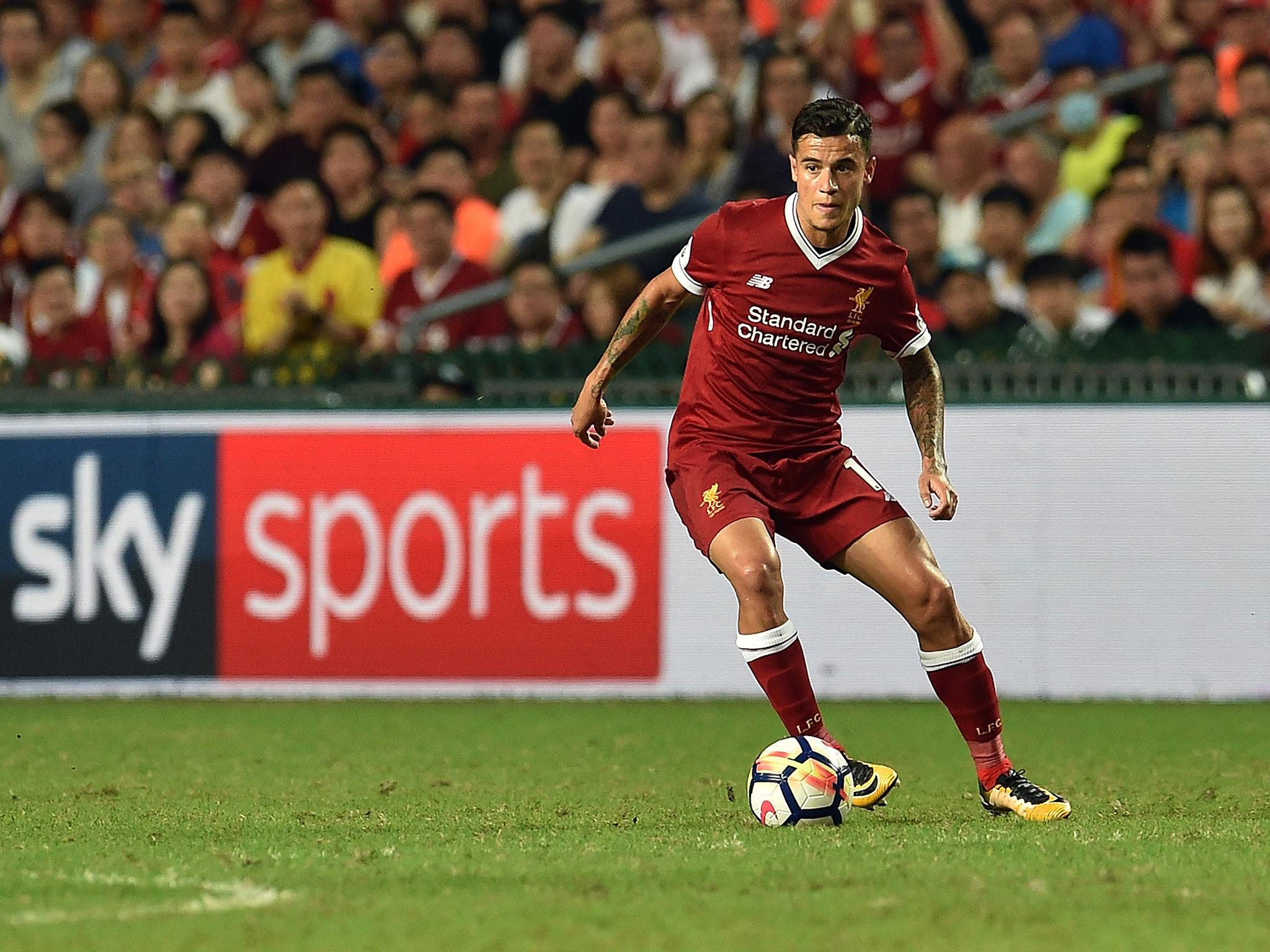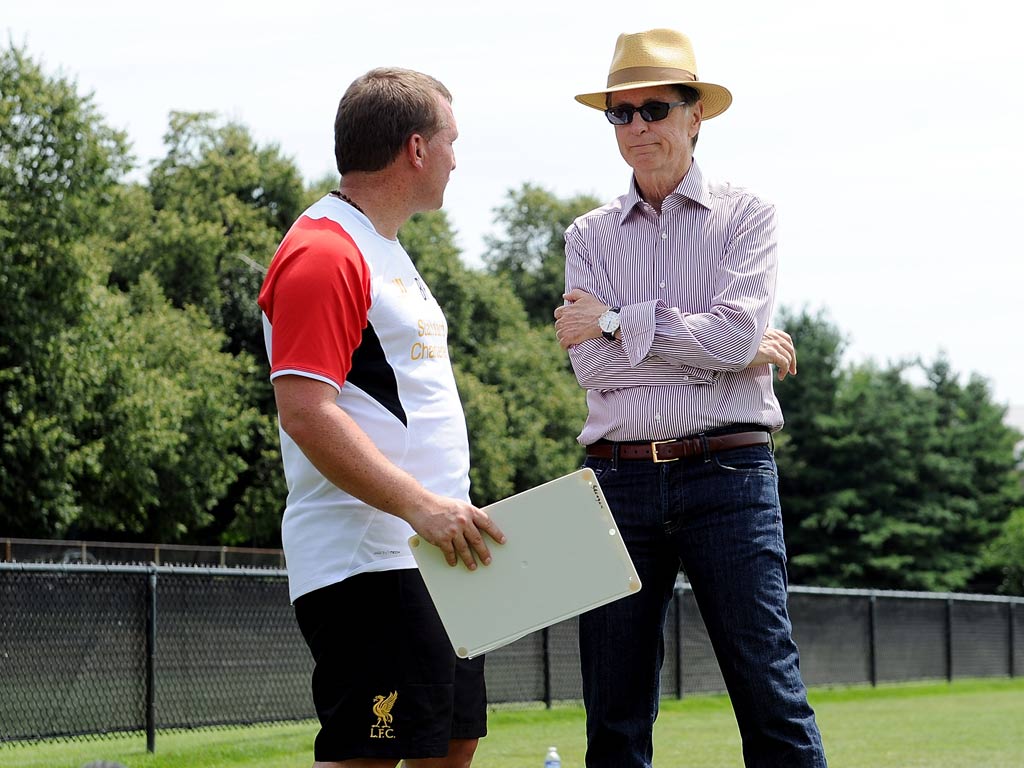The inside story of why Liverpool couldn't buckle and sell Philippe Coutinho to a man they used to know
John W Henry personally intervened to ensure Coutinho was going nowhere, and Simon Hughes explains why...

Your support helps us to tell the story
From reproductive rights to climate change to Big Tech, The Independent is on the ground when the story is developing. Whether it's investigating the financials of Elon Musk's pro-Trump PAC or producing our latest documentary, 'The A Word', which shines a light on the American women fighting for reproductive rights, we know how important it is to parse out the facts from the messaging.
At such a critical moment in US history, we need reporters on the ground. Your donation allows us to keep sending journalists to speak to both sides of the story.
The Independent is trusted by Americans across the entire political spectrum. And unlike many other quality news outlets, we choose not to lock Americans out of our reporting and analysis with paywalls. We believe quality journalism should be available to everyone, paid for by those who can afford it.
Your support makes all the difference.Five years separates two stories involving the same characters; one prevalent in this country, another not so well known. They are tales that go some way towards explaining why Barcelona were so forceful in their attempt to sign Philippe Coutinho but ultimately, why their attempt will prove not to be quite forceful enough.
It was in July 2012 when Pep Segura, then the technical manager at Liverpool’s academy, ended his three-year association at the club after previously being told by Liverpool’s owner, John W. Henry, he had earned a promotion.
Before Brendan Rodgers became Liverpool’s manager, Henry and Segura held a three-hour meeting and it was concluded that Segura would become Liverpool’s new sporting director, filling the administrative space left behind by Damien Comolli’s sacking a few months earlier.
Rodgers, though, had other ideas, insisting his own appointment would not involve another tier of management above him. For Segura – a decent man, and someone respected inside Liverpool particularly for his contribution towards the development of Raheem Sterling – there was reasonable embarrassment when he arrived at Melwood for the start of pre-season training only to find out then there would be no place for him in the new set-up.

Despite his efforts to contact Henry about his proposed fresh responsibilities, the line of communication had gone stone cold since Rodgers’s arrival. Though he expected that plans had changed, Segura was upset and angry that he had found out this way and so, on that July morning, rather than driving to the academy in Kirkby as he had been told to by Rodgers, he resigned on the spot – though the announcement of his departure was made a month later.
Those who knew Segura best from his time at Liverpool describe him as a professional and so, his hurt was understandable considering he had been treated without the necessary level of respect. Sources in Catalonia, meanwhile, say Segura has a long memory. Now Barcelona’s general manager having returned to the club where he built his coaching reputation, and as the person overseeing player recruitment, it is told he has viewed the signing of Coutinho as a personal mission.

While Coutinho is seen as a long-term successor for the fading Andrés Iniesta, the whiplash of his own departure from Liverpool still stings and it is said he would like nothing better than to expose Fenway Sports Group’s collective stance over Coutinho’s future as total mush.
It was a small but significant detail when Fenway released a “definitive” statement earlier this month, outlining that Coutinho would not be sold, this was not a statement released by Liverpool FC but by its ownership group, a statement, indeed, that was not signed off by any person in particular as they often are when something important is announced
Hour-by-hour, day-to-day, week-to-week, Henry does not have much involvement in the decision-making processes at the club and instead, key issues are dealt with by Jürgen Klopp, Michael Edwards, Liverpool’s sporting director, and Mike Gordon, Fenway’s president.
Henry only intervenes when he really needs to and this was one of his calls. Before Coutinho had submitted his transfer request, Henry knew that his scan, taken on Tuesday August 8, for mysterious back strain had returned without obvious signs of injury. He knew as well that two days later a 3pm meeting involving Edwards and Coutinho’s representatives had not gone well at all. Any owner of a well-run football club should also be informed and be able to imagine what might follow when a star player signs a new five year-contract – as Coutinho did in January – but proceeds to only agree a short-term lease on his home, especially when it has already been reported that Barcelona are interested in him.

Those that have dealt with Henry regularly know how he is capable of brain lapses, instances where he has appeared completely engrossed on a subject one moment and unreachable the next. Particularly relating to Liverpool matters, perhaps living on the other side of an ocean while running a business empire where Anfield forms only a part of his thoughts contributes towards the way he approaches things. Perhaps, indeed, this is why Segura found himself isolated very quickly from what seemed a position of promise.
Henry’s distance from Merseyside has not helped in the past because he has not been around to cast judgements for himself. He has instead relied on the opinions of his appointments, which have been bad ones too often – meaning that he has only acted when it has been too late, contributing towards a generally negative impression of his and Fenway’s intentions.
Having decided that Coutinho would stay, he could not afford to back down particularly when the transfer market did not map out exactly the way Liverpool or its febrile supporter base would have wanted in terms of incomings. Fenway have been determined to change Liverpool’s reputation and by not relenting to Coutinho’s wishes, for the time being at least, it sends a message to their own players as well as rivals that this is not a selling club.
Any other outcome would have been received as deception and from then on, it is hard to see how any of the messages coming out of Liverpool would ever be trusted again.
Join our commenting forum
Join thought-provoking conversations, follow other Independent readers and see their replies
Comments